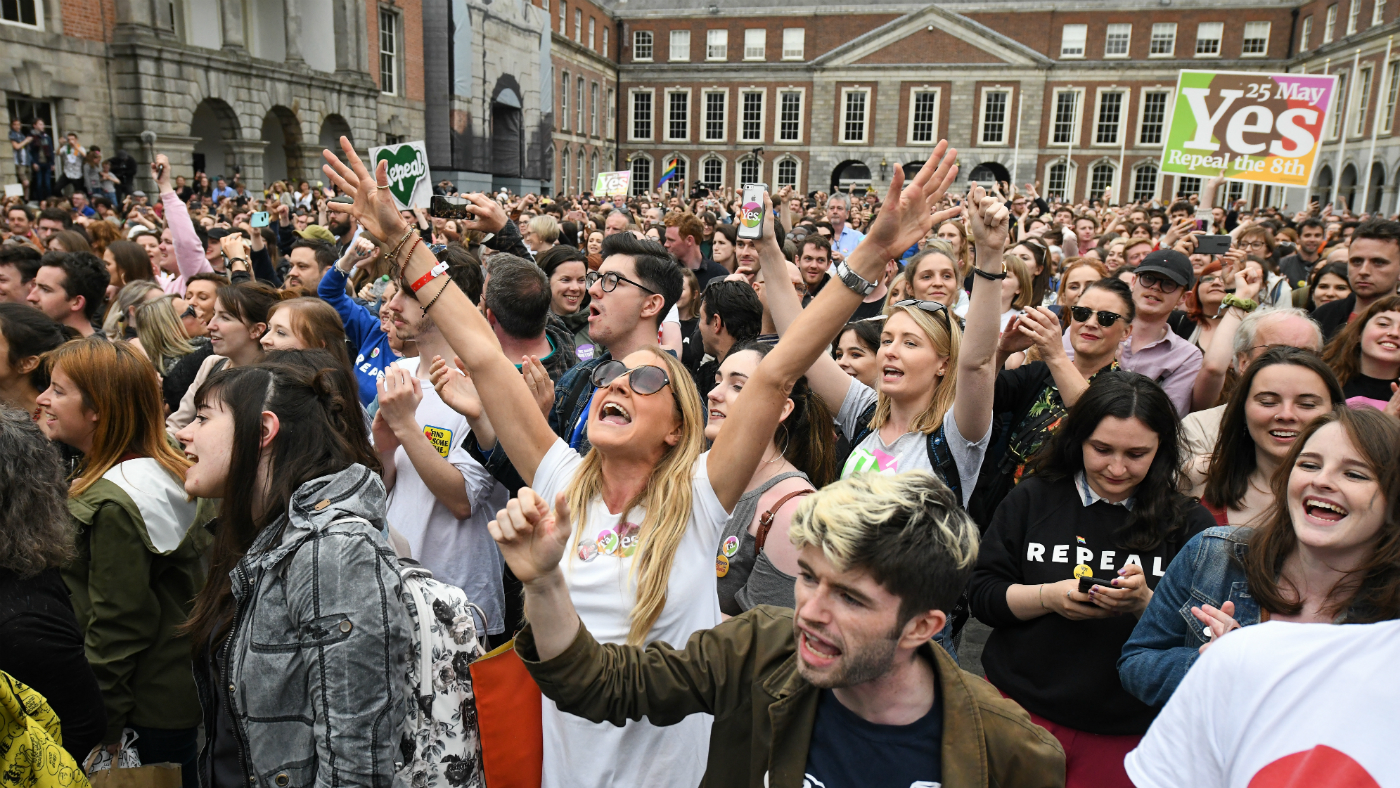Ireland close to removing 'women's place' clause in constitution
Parliamentary committee says there is 'no justification' for the outdated provision

A free daily email with the biggest news stories of the day – and the best features from TheWeek.com
You are now subscribed
Your newsletter sign-up was successful
Ireland has come one step closer to removing language from its constitution enshrining the importance of women’s domestic duties and “life in the home”.
The Irish parliament’s Joint Committee on Justice and Equality has issued a report calling for the offending passage to be reworded or removed entirely.
Feminists have long criticised Article 41.2 of the Irish Constitution (Bunreacht na hÉireann), which states that “the State recognises that by her life within the home, woman gives to the State a support without which the common good cannot be achieved”.
The Week
Escape your echo chamber. Get the facts behind the news, plus analysis from multiple perspectives.

Sign up for The Week's Free Newsletters
From our morning news briefing to a weekly Good News Newsletter, get the best of The Week delivered directly to your inbox.
From our morning news briefing to a weekly Good News Newsletter, get the best of The Week delivered directly to your inbox.
“The State shall, therefore, endeavour to ensure that mothers shall not be obliged by economic necessity to engage in labour to the neglect of their duties in the home.”
Critics say the language and the ideas it perpetuates about gender roles are outdated and inappropriate for a 21st century society.
The Irish Times describes the clause as a “paternalistic throwback to 1930s Ireland” and says that “while the sentiment may have been honourable, the language used is (in modern times in any case) insulting”.
The committee said that there is “no reasonable argument or justification for retaining the current provision” and presented two potential alternatives.
A free daily email with the biggest news stories of the day – and the best features from TheWeek.com
One proposal would reword the clause to make it a gender neutral recognition of carers, while the other would be to postpone any referendum on the matter until a formal public consultation into other options, including removing the clause altogether.
Their report and recommendations will now be considered by the government, who have previously suggested that the issue will be put to a public vote in the near future.
If the movement to remove the offending language is successful, it will be the latest in a series of major reforms to the constitution, penned in 1937 with the heavy influence of the Catholic Church.
In May this year, Irish citizens voted to overturn the constitution’s ban on abortion was overturned by a majority of two to one, while in October, another referendum removed language outlawing blasphemy.
However, with two more constitutional referendums on divorce restrictions and the voting rights of Irish citizens abroad on the horizon for May next year, the Irish Times warns that voters’ appetite for reform may be on the wane.
The rejection of proposed amendments which would have altered the balance of power between the Irish parliament’s upper and lower houses laid out in the constitution “showed that voters guard the Constitution diligently”, says the editorial.
The public “need to be convinced by valid argument before they will approve change. And rightly so”.
-
 Political cartoons for February 15
Political cartoons for February 15Cartoons Sunday's political cartoons include political ventriloquism, Europe in the middle, and more
-
 The broken water companies failing England and Wales
The broken water companies failing England and WalesExplainer With rising bills, deteriorating river health and a lack of investment, regulators face an uphill battle to stabilise the industry
-
 A thrilling foodie city in northern Japan
A thrilling foodie city in northern JapanThe Week Recommends The food scene here is ‘unspoilt’ and ‘fun’
-
 Epstein files topple law CEO, roil UK government
Epstein files topple law CEO, roil UK governmentSpeed Read Peter Mandelson, Britain’s former ambassador to the US, is caught up in the scandal
-
 Iran and US prepare to meet after skirmishes
Iran and US prepare to meet after skirmishesSpeed Read The incident comes amid heightened tensions in the Middle East
-
 Israel retrieves final hostage’s body from Gaza
Israel retrieves final hostage’s body from GazaSpeed Read The 24-year-old police officer was killed during the initial Hamas attack
-
 China’s Xi targets top general in growing purge
China’s Xi targets top general in growing purgeSpeed Read Zhang Youxia is being investigated over ‘grave violations’ of the law
-
 Panama and Canada are negotiating over a crucial copper mine
Panama and Canada are negotiating over a crucial copper mineIn the Spotlight Panama is set to make a final decision on the mine this summer
-
 Why Greenland’s natural resources are nearly impossible to mine
Why Greenland’s natural resources are nearly impossible to mineThe Explainer The country’s natural landscape makes the task extremely difficult
-
 Iran cuts internet as protests escalate
Iran cuts internet as protests escalateSpeed Reada Government buildings across the country have been set on fire
-
 US nabs ‘shadow’ tanker claimed by Russia
US nabs ‘shadow’ tanker claimed by RussiaSpeed Read The ship was one of two vessels seized by the US military